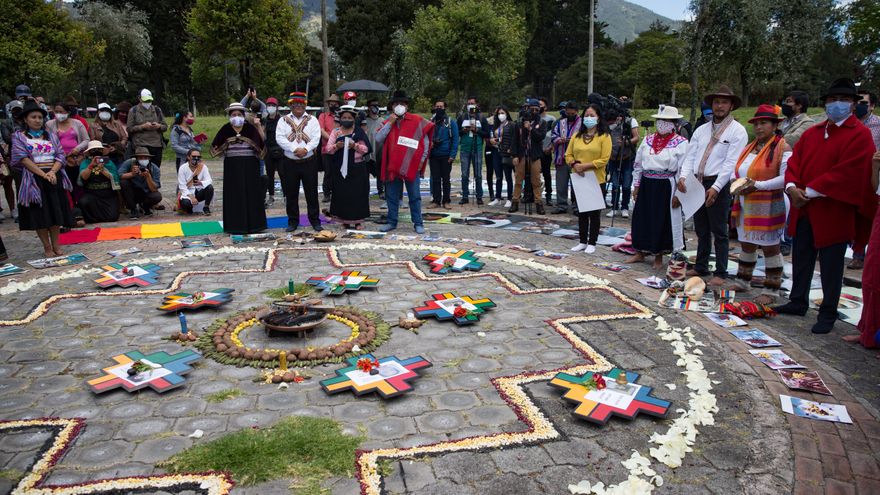RIO DE JANEIRO, BRAZIL – The president of Ecuador, Guillermo Lasso, signed this Friday (20) a law that paves the way to the re-establishment of the Amawtay Wasi Indigenous University, a higher education initiative closed in 2013, which will promote interculturalism in the country.
The president signed the Reformatory Law to the Law of Creation of the Amawtay Wasi University, providing for “the institutionalization of the campus,” reported the General Secretariat of Communication of the Presidency.
Read also: Check out our coverage on Ecuador
Lasso described as a “historic act” the official launching of the academic institution for a sector that represents around 8% of the population.

“Amawtay Wasi means the house of knowledge and is a university oriented to intercultural education, which has its institutional development plan, a pedagogical model, university statute, internal regulations of the academic regime and election regulations,” he detailed.
The university began activities in May 2021 and offers, for now, undergraduate degrees in Language and Culture, Child, Family and Community Development Management, and Law with a focus on Legal Pluralism, all of them with intercultural orientation and relevance, according to the official communiqué.
The Secretary of Higher Education, Science, Technology and Innovation, Alejandro Ribadeneira, considered that the center would be “a contribution to interculturalism and the development of indigenous peoples and nationalities”.
Amawtay Wasi University was created as a private institution in 2004, closed in 2013 by the Government of Rafael Correa, and in 2018 reformed under the government.
The signing of the legislation coincided with the first meeting of a preliminary nature held today between representatives of indigenous organizations and the government, aimed at the beginning of an official dialogue between the parties, presumably in September.
Among the main issues that the indigenous leaders conveyed to the government are fuel prices, extractivism, health, education, and the productive sector.
The meeting took place Friday after an official invitation from Lasso to the indigenous leadership, and the absence of the president of the Confederation of Indigenous Nationalities of Ecuador (CONAIE), Leonidas Iza, was noteworthy.
His spokesman, Apawki Castro, explained to Efe that the attendees integrated a delegation to the “advanced meeting” to agree on three points requested by the leaders: to set a date, a methodology for the meeting with the central points, and to include the issue of the participation of the delegates.

